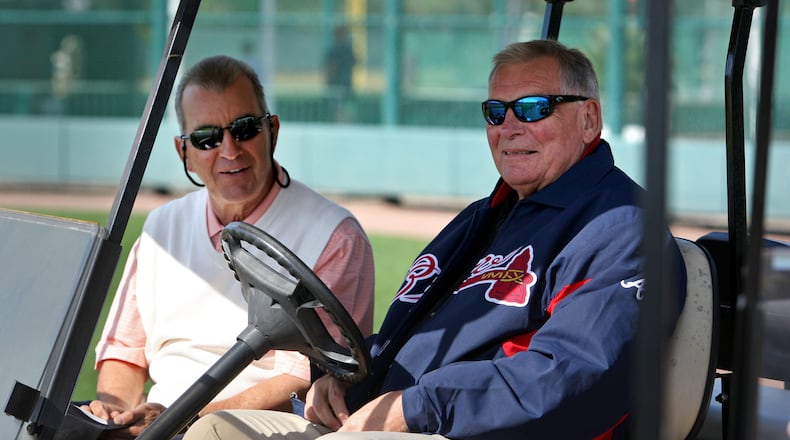John Schuerholz changed the Atlanta Braves at a time when change -- at least change for the better -- was a distant memory. It was October 1990. They'd just completed a seventh consecutive losing season. Of things to do in our busy city, a Braves' game ranked in the bottom 1 percentile. They'd embarked on a rebuilding campaign under Bobby Cox, who'd been the general manager for five years, but there was no guarantee anything would come of it.
Then Schuerholz showed up, imported by Stan Kasten from the Kansas City Royals, where he'd built something a model franchise and won the 1985 World Series. The Royals had started to sag -- a bad Schuerholz trade involving David Cone hadn't helped -- but still: This was a proven pro, come to right an organization that had become Amateur Hour.
Schuerholz showed up wearing his suspenders, and not the kind Mr. Green Jeans sported. These were the Wall Street kind, the Gordon Gekko kind. This was not a man, we knew from Day 1, to be taken lightly. Without the kid pitchers Cox had assembled, the Braves would never have been great. Without the players Schuerholz put around those kid pitchers, the Braves mightn't have gotten good.
Schuerholz showed up and, in short order, hired Terry Pendleton and Sid Bream and Rafael Belliard and Otis Nixon. One would become the 1991 National League MVP. One would score the most famous run in Braves history. One would make an over-the-shoulder catch near the end of the game that made the Braves World Series champions. One would make the greatest catch anybody had ever seen.
Schuerholz showed up and the Braves went worst-to-first and nearly won the World Series right off the bat, but you knew that already. What you mightn't have known -- or might have forgotten -- was how the 1991 season began. It was just another home opener against the hated Dodgers, a home opener for a team that hadn't broken .500 or drawn flies since 1983. And the old stadium was ... packed.
The game was rained out -- the Braves' fortunes hadn't changed just yet -- but still: There was no reason for the ballpark to have been sold out that April night except for John Schuerholz, who had posed for full-page ads in those famous suspenders, the clear message being: We're back in business. And an audience starved for any sign of competence bought up every seat.
The actual opener was staged as a makeup game the next afternoon before a sparse crowd, but that wasn't what mattered. What mattered was that the Braves had found the man who would lead them up from oblivion and would sustain that excellence over -- this still beggars belief -- 14 consecutive first-place finishes.
The Braves were unlucky to have won only the one World Series, but there was nothing lucky about those 14 division titles. Ask any baseball man and he'll gush and say, "That could never happen again." And it surely won't. (It had never happened before). But it happened here, largely and perhaps mostly because of John Schuerholz.
News that the great man is stepping down as team president comes as only a slight surprise. He's 75. He has been president for nearly a decade, and the new stadium -- the one being built a five-minute drive from his Vinings condominium -- is set to open next year. His work here is done. That work will never be surpassed. He's often described as the greatest GM ever, and he was. But he was more than that: This GM didn't just change a team. He changed a city.
About the Author
The Latest
Featured



